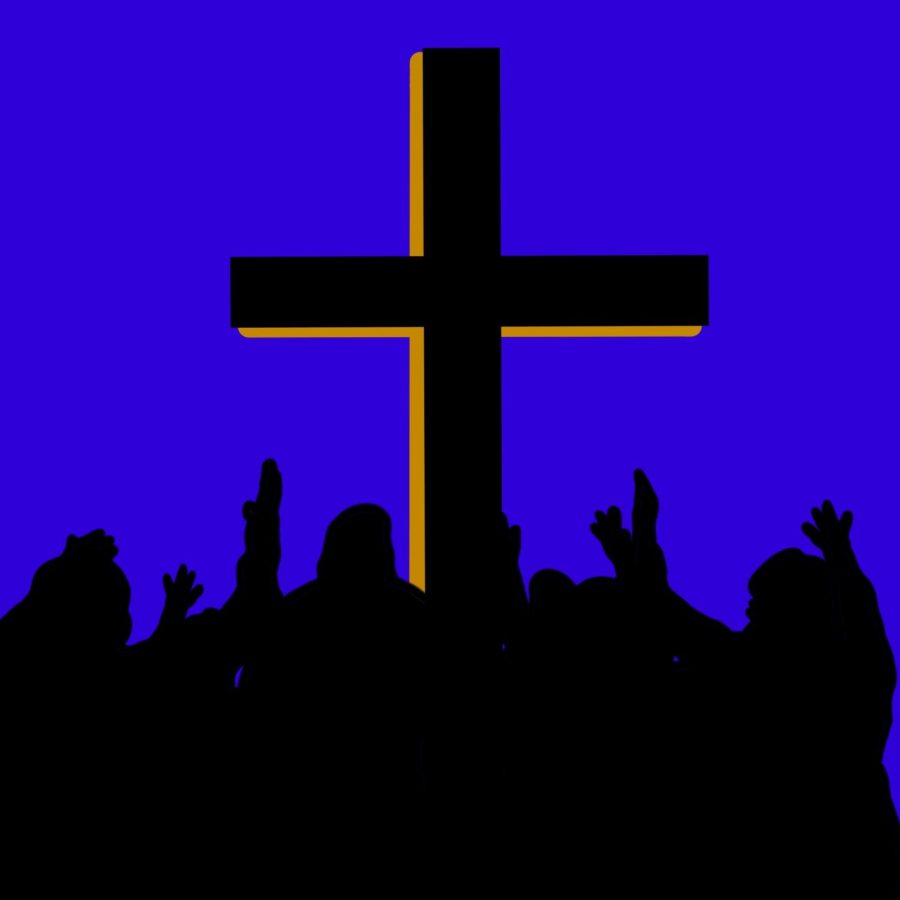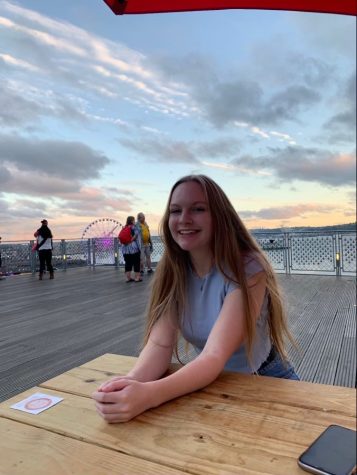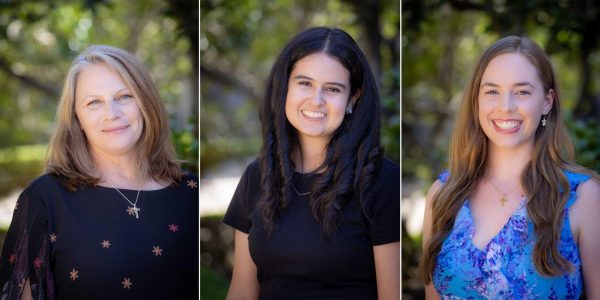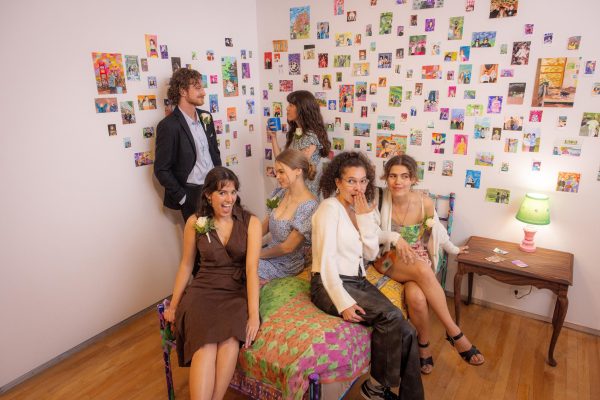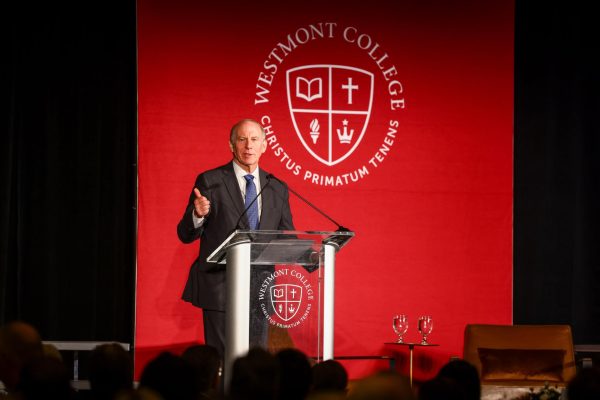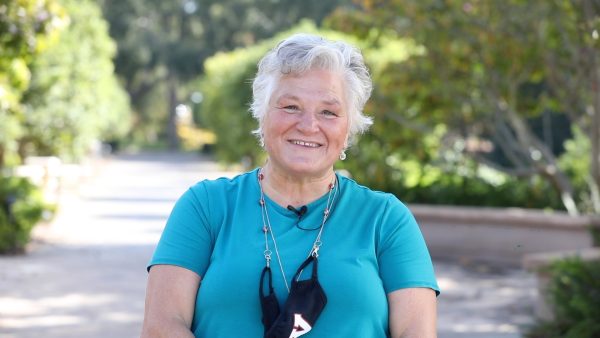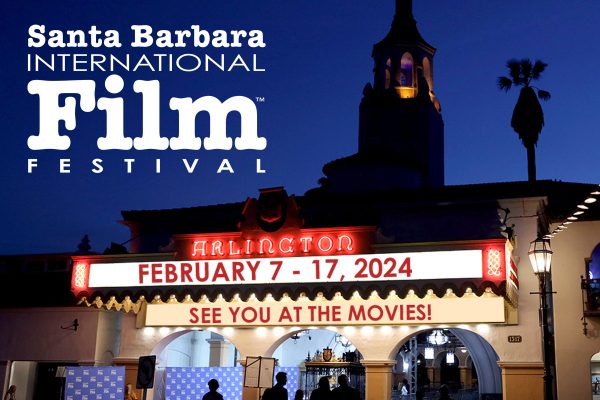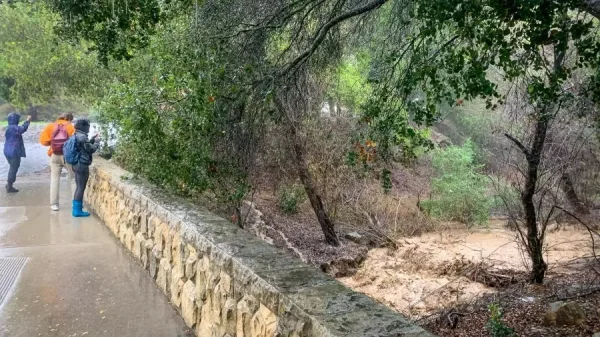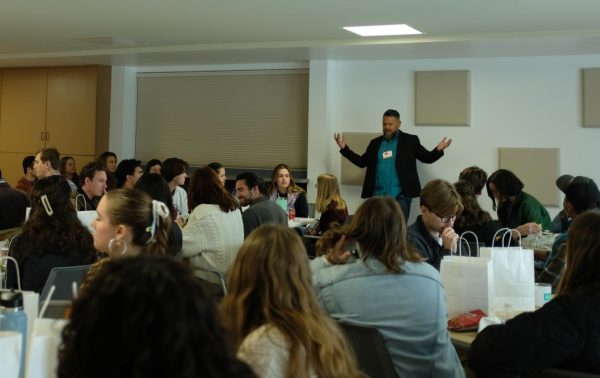WCSA holds panel discussing Asbury University revival
An “outpouring” of the Holy Spirit broke out after a chapel service at Asbury University, attracting thousands from around the world.
March 7, 2023
A revival at Asbury University in Wilmore, Kentucky lasted for 16 days straight after a Wednesday morning Chapel service on Feb. 8. This self-proclaimed “outpouring” event attracted the attention of Christians around the world, many of whom flocked to the small town of 6,000 to experience the event for themselves. The number of visitors has been estimated at 50,000.
The event has also been the topic of discussion and criticism in both Christian circles and the mainstream media. On March 2, in an effort to engage in this nation-wide dialogue, Westmont College Student Association (WCSA) hosted a panel featuring Dr. Beers, Dr. Richter and Dr. Rhee of the religious studies department, as well as Dr. Kent of the sociology department. The conversation was moderated by Dr. Yadav, also of the religious studies department.
Though the university itself has not used the term ‘revival’ to describe what happened on its campus, the event triggered a frenzied wave of reports of a revival happening at the college. Professor of church history, Dr. Rhee defined this buzz word as “an acknowledgement of God’s extraordinary work and sometimes surprising work of the Holy Spirit in a collective way that lasts for an extended period of time.”
Dr. Richter, who spent the first 10 years of her professorial career at Asbury, described what led to this extended prayer, worship and confession service. “About 20 students lingered [after Chapel], and as they lingered the Holy Spirit showed up and just met them.” From there, she said, students began to text people they knew and ran around campus to tell other students to “come back to Chapel.”
Asbury University did not cancel classes during this 16 day period and many of the student attendees came between their busy schedules. Despite this, Asbury’s Hughes Auditorium was never empty during this time.
The nonstop service was characterized by worship, prayer, confession of sins and reported healings. Due to the immense crowds that flocked from all over the nation and world, the University began to limit attendance to young people (16-25 year olds) for much of the services.
During the panel, Dr. Beers emphasized how relevant this particular revival was to Generation Z. She first quoted her friend Dr. Pierce of Western Theological Seminary who wrote: “I find it interesting that God would mark this outpouring with a tangible sense of peace for a generation with unprecedented anxiety … An authentic hope for a generation marked by depression. A leadership emphasizing protective humility in relationship with power for a generation deeply hurt by the abuse of religious power. And a focus on participatory adoration for an age of digital distraction.” Dr. Beers added that this “is what the God of the Bible always does, is meet people in real places of need where they’re at.”
Another main emphasis that the panelists made was the flourishing of student leadership of the event. Dr. Kent, speaking of the danger of an event such as this one coming under bureaucratic administrative control, said “the administration saw that [student leadership], recognized it and tried to protect it as much as they could.” Dr. Richter added that the administration was, “really committed to letting student leadership continue” and “at no point did the faculty or administration take over this movement.”
Discussion of Asbury’s ‘outpouring’ has also featured strong criticism. Some have called into question the authenticity of the event, while others, as Dr. Yadav expressed, have emphasized the social injustices that could be perpetuated or remain un-resolved through the event. Further, there are concerns of this event becoming a political talking point for the conservative right, as Dr. Kent echoed on the panel. This concern specifically was expressed by multiple panelists, such as Dr. Richter, who explained that many conservative figures attempted to “ride the wave” of the revival, a political move shut down by the college.
Despite this myriad of concerns, the overall attitude of the panel was hopeful for the potential of what a revival such as this can do for the Christian community and affirmative of the event’s authenticity. Dr. Kent said, “I am so affirming of what was happening in terms of collective behavior [the collective nature of the event] … [this is] really good fruit.” Dr. Richter echoed, “the only place I have seen the true leveling of neither Jew nor Greek, slave or free, male or female, the only place I have really seen that happen is in revival contexts.”
The panelists did however encourage critical reflection of Asbury’s revival and similar events. In response to the fallout that typically comes with such events which was labeled by the panel as ‘messiness,’ Dr. Rhee said, “the messiness usually comes with the human involvement and interpretation of what the Holy Spirit is doing.” Dr. Kent added, “There’s reports of people trying to take advantage of it … so there’s certainly important reflection to be done.”
However, Dr. Beers declared that as a Pentecostal she is “not afraid of the ‘messiness’” that the human aspect of revivals invoke because we must “make room for the Holy Spirit to move.” Dr. Richter surmised, “don’t lose sight of the revival fire because of the wildfire [of human messiness].”

